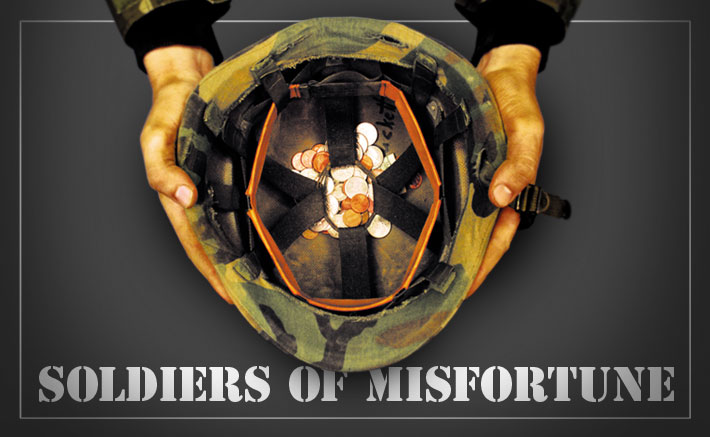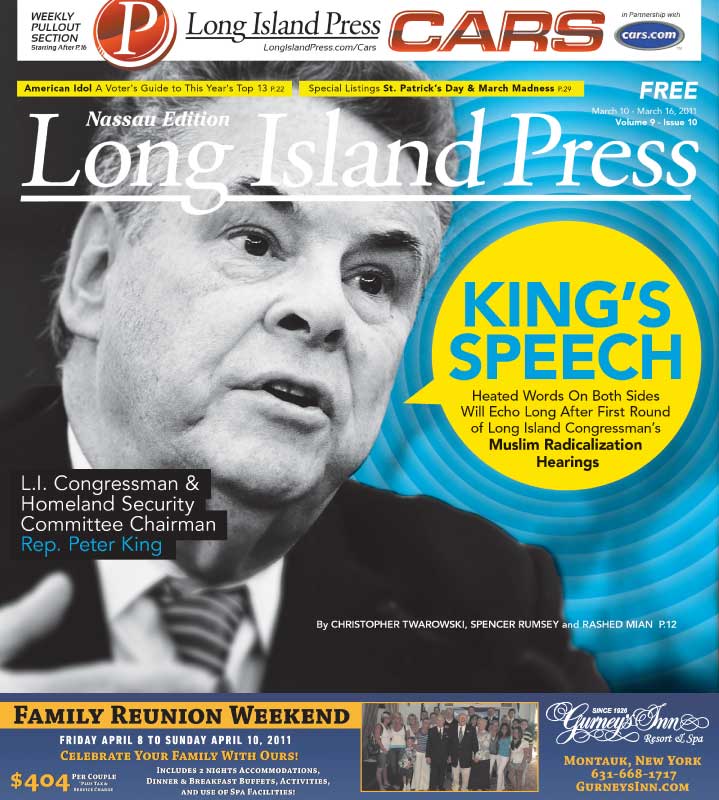

The graduation photo on display in the second floor office of The Veterans Place, a reconverted motel in Yaphank, tells only part of the story. Wilkens Young, director of operations for the nonprofit Suffolk County United Veterans (SCUV), stands beaming with pride next to a younger man grinning in a cap and gown after getting his G.E.D. He’s not his son—he’s a Gulf War veteran whom Young found after he’d been living all winter in the woods near Mastic.
“If you’ve been in the military,” Young says, “a good sleeping bag and a tent is all you need.”
Young had served in the Army in 1976, stationed in Germany for two years. Now 54, happily married, a proud father, and a doting grandfather, he understands the problems that had led the younger veteran astray before he got his life together. After Young left the Army, he was “doing all right for a while,” living in Bellport, until he “got caught up in the drugs and everything and life just started to deteriorate.” Young wound up doing time, a lot of time, in upstate prisons. He’d come out, “get a taste of what sobriety actually was,” and then relapse.
But the last prison he was in encouraged him to get an associate’s degree in business administration and helped him connect with a veterans program that ultimately led him to John Lynch, chief executive officer of the SCUV, which runs a rigorous transitional housing program for veterans. Young was homeless, but thanks to Lynch’s group, he’s now a homeowner and a role model.
“I didn’t get it right the first time,” Young says. “I didn’t get it right the second time. It’s only by the grace of God and my own desire and wants that I got it right the third time.”
Young has been at SCUV’s shelter since November 2000. This program, which Lynch founded in 1989, is relatively small, with rooms for 24 people at the motel.

Wilkens Young
“I always try to keep one bed open,” he says. Half a dozen other houses scattered in Suffolk accommodate about five people each, serving about 65 veterans in all at any one time. The rules are strict for this therapeutic community: No drinking, no drugs, no fighting, and there are curfews. The pressure is on for them to follow Young up the ladder.
“When I sit down and talk with the guys,” he explains, “the first thing I tell them is: Listen, I started at the bottom. There’s not a job in this place that I haven’t done, from washing pots to mopping floors to cutting the grass, to dumping the garbage and driving [the vans].” But the most important message, he says, is telling them that “our job isn’t to take care of you. Our job is to help you take care of yourself.”
Sadly, for far too many veterans, accomplishing that mission can be almost impossible.





